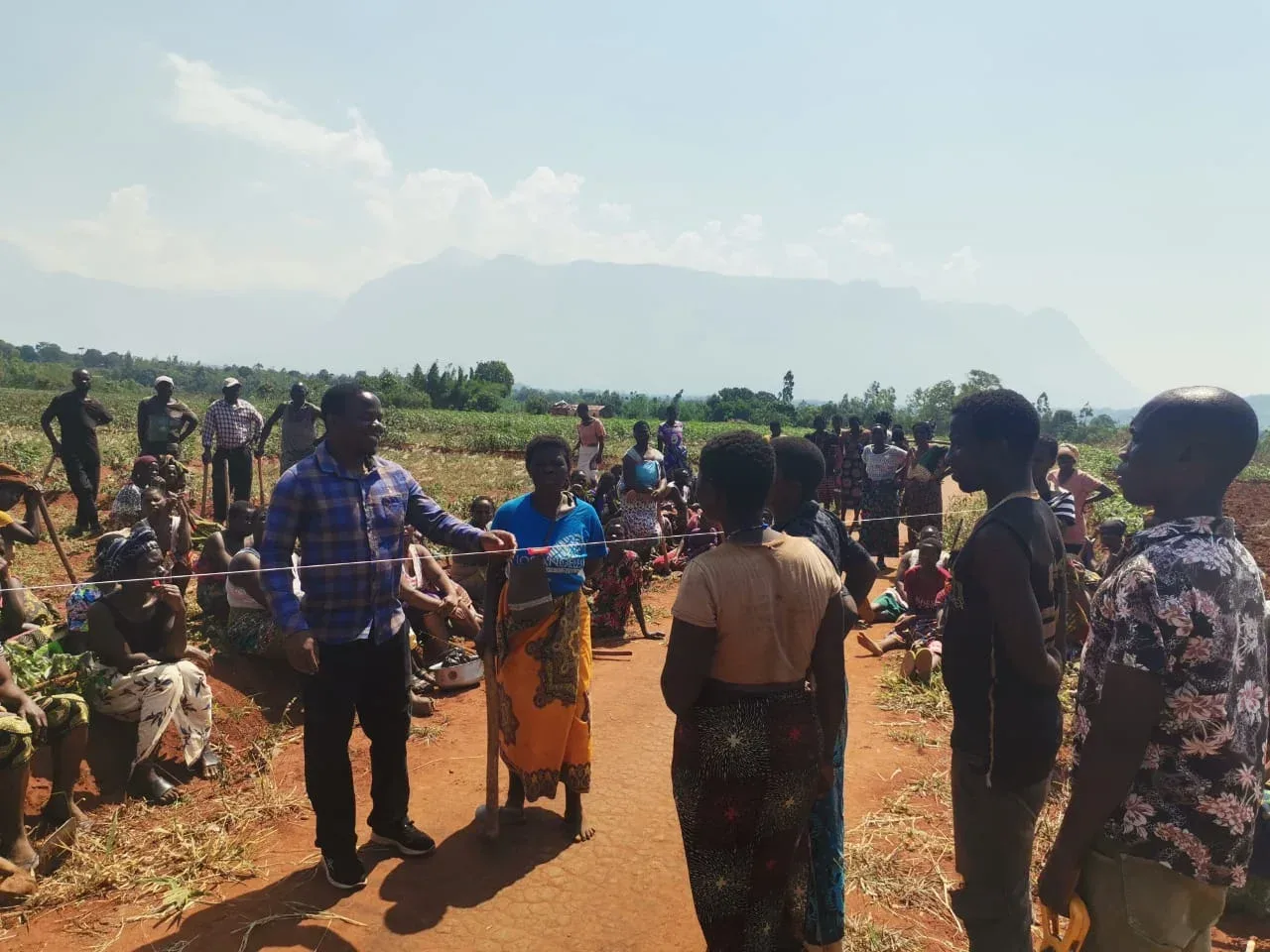Tiyeni’s climate-smart farming featured in BBC News Africa story.
Nov 05, 2025
Tiyeni, a Malawian non-profit, is pioneering Deep Bed Farming (DBF), an innovative agricultural approach that improves soil quality, reduces erosion, and boosts crop yields. The BBC recently featured Tiyeni in a video highlighting how DBF is helping smallholder farmers build resilience to climate change while increasing food security.
In January 2025, GIF provided Tiyeni with a grant of $750,000 to support the non-profit in training farmers around the Lunyangwa River watershed in DBF. With this funding, Tiyeni is also working with an independent evaluator to understand how well farmers are adopting DBF, what helps or hinders them from doing so, and how profitable the approach is. The evaluation will also look at the benefits for the watershed. In addition, part of the grant will help strengthen Tiyeni’s internal team by adding a board member with financial expertise.
So far, Tiyeni has started training a total of 3,769 farmers. They have also met with key government agencies, including the National Regional Water Board (NRWB), to build partnerships and gain support. The NRWB has agreed to help with the Lunyangwa Watershed Project by engaging local communities, providing farm inputs such as tree seeds and seedlings, and helping to manage water resources. Tiyeni has also held awareness sessions with government field extension staff, who will help organize community outreach activities and encourage local support for the project.
How Deep Bed Farming works
Malawi’s farmland has been degraded by deforestation and unsustainable farming practices, which compacts the soil and creates a hardpan layer. A hardpan is a dense, compacted layer of soil beneath the surface that prevents roots from growing deeply and reduces water infiltration. DBF restores soil structure by breaking up the hardpan, creating raised planting beds, and constructing closed furrows to capture rainwater. Farmers also learn climate-smart practices such as intercropping, mulching, and crop rotation, all designed to improve yields while conserving water and protecting the soil.

Engaging the next generation
Tiyeni is now bringing DBF into schools to introduce students to climate-smart agricultural techniques and is developing a handbook for use in schools. With government approval, DBF will be included in Malawi’s 2026 Guide to Agriculture Production and Natural Resources Management, which will allow this innovative approach to smallholder farming to be taught in schools and universities nationwide.
Farming that changes lives
BBC News Africa has highlighted the impact of DBF on farmers like Wilfred Soko, who started using the technique a decade ago and has since transformed his maize production. Increased yields have enabled him to improve his household’s quality of life, including access to electricity and a television, and provide for his family.
In a country grappling with chronic hunger, Tiyeni’s training empowers farmers with sustainable practices that boost incomes and food security, while also opening opportunities to supply surplus crops for export. DBF has helped improve yields by up to 40% and trained 40,000 farmers across Malawi. Watch the BBC video to see the impact first-hand.
Watch the BBC Tiyeni feature here.
